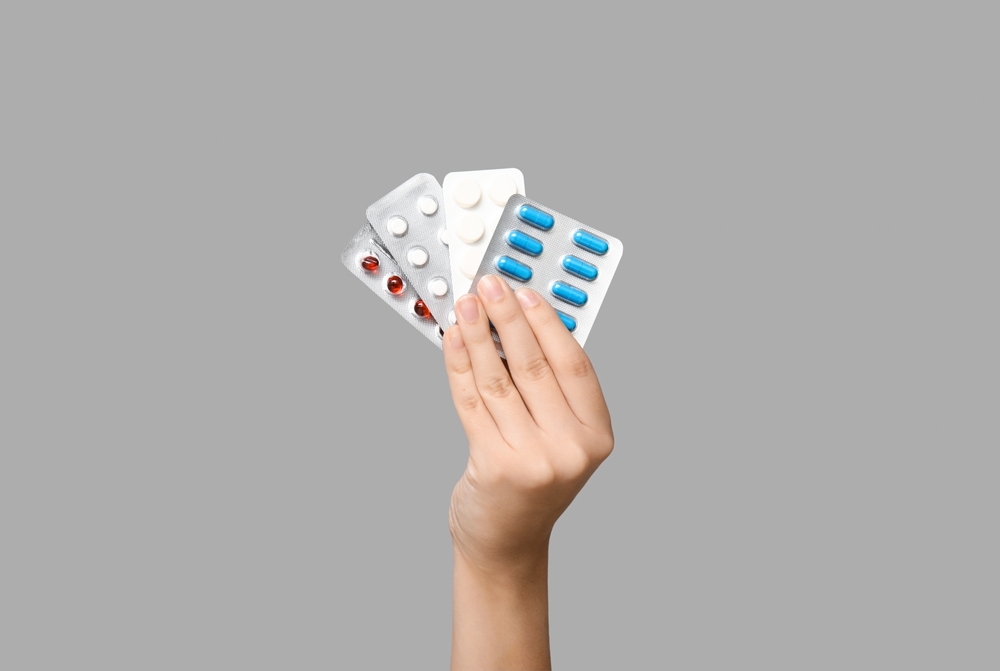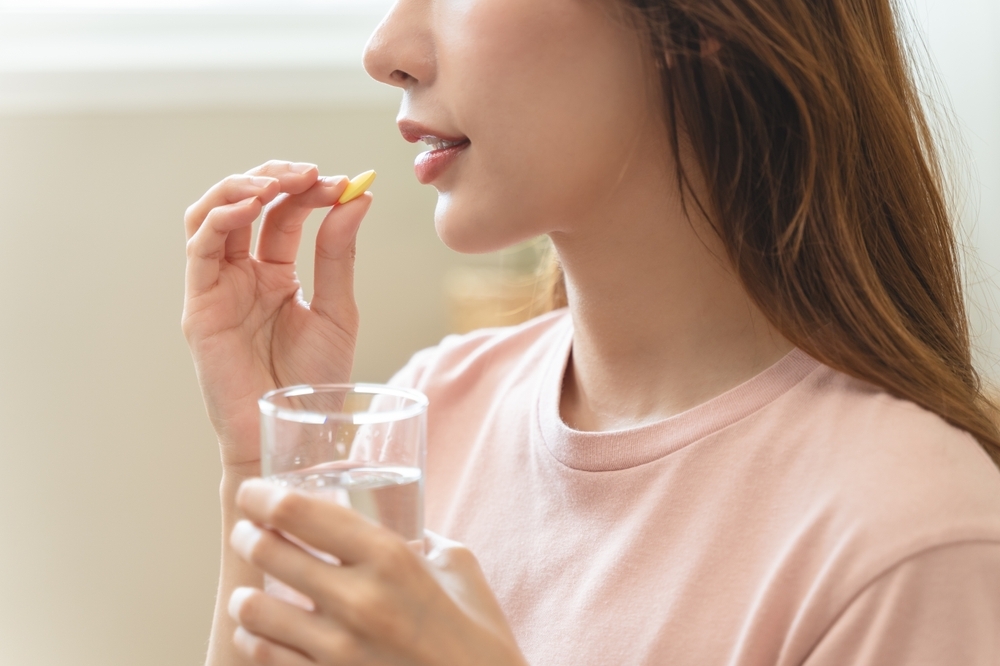
Last Updated:
April 8th, 2025
All of us can struggle with managing negative feelings in our lives. It is not uncommon to turn to substances to alleviate underlying conditions and mental health problems, yet the consequences of self-medication can be perilous.
What is self-medicating?
When someone chooses to use a substance to manage symptoms, they diagnose themselves; this is known as “self-medicating.” They may know in the back of their mind that they have a serious problem, yet choose a substance to escape their feelings.
In some ways, all of us can be guilty of self-medicating, though that might not necessarily be with medicine or a substance that harms us in obvious ways. Many of us are convinced that we can’t function properly in the morning without caffeine, or we treat ourselves with “comfort food” to feel better when feeling depressed.
For this reason, it’s important to remember compassion and empathy when helping someone who self-medicates.
What leads a person to self-medicate?
The reasons a person may choose to self-medicate are varied and complex. Some of the reasons can include:
- Lack of access to proper healthcare: Not everyone has the same access to prescription drugs. If a person has a mental health issue or disorder, they may not know where to go for therapy, which could help with their condition.
- Anxiety and past trauma: Trauma can play a large part in a person’s decision to avoid a professional and instead self-diagnose. Trauma leads us to painful emotions, so self-medication becomes a form of coping. In addition, anxiety disorders can be common in people who self-medicate. Research into anxiety and mood disorders found as many as 24% of people with these disorders self-medicated.
- Cultural and societal influences: In a broad sense, cultural norms and depictions of substances in media can influence our behaviours. As an example, many films casually depict the act of “Dutch-courage,” wherein alcohol becomes a default way of easing social anxiety. Much of the music we listen to also has lyrics about drug use, sung with great abandon. Research even suggests that greater access to medical information through the internet has diminished many people’s desire to consult a medical expert.
Regardless of the contributing factors, it is critical to recognise that self-medication carries inherent risks and pitfalls that can harm one in the long run.
Which substances are most often used as self-medication?
Just as the reasons why people self-diagnose and avoid the advice of healthcare professionals can vary, so can the substances used. Some of the most commonly used substances by a person who self-medicates include:
What are the risks of self-medicating?
If you’re facing a serious physical or mental health problem and you don’t see a health expert, the risks can become severe. Self-medicating can have serious consequences for your physical and mental well-being, with some of the most common dangers including:
- Addiction: Many of the substances people choose to self-medicate with can rapidly lead to drug addiction and substance use disorders. For example, a person choosing alcohol or weed as a form to cope with stress and anxiety can quickly lose control and feel like they can’t function without it. However, it’s not just illicit drugs that pose a risk, self-medicating with prescription drugs like benzodiazepines or sleeping pills can easily spiral into prescription drug addiction. If left unchecked, prescription drug addiction can be just as devastating as addiction to illicit substances.
- Health complications: Self-medicating with many substances can have major adverse health effects. You’re likely to suffer from disrupted sleep, energy depletion and an impaired immune system, meaning you’ll be sick more often. Emotional health and well-being also suffer by self-medicating, compounding negative feelings and further driving you from seeing a health expert.
- Unforeseen interactions with other drugs: If a person chooses to self-diagnose and then take medication, it can be very likely that they’ll overlook the dangerous interactions two substances can have. For example, if a person has a heavy cough and self-medicates with benzonatate, there are interactions with antidepressants they may be unaware of.
Signs you may be self-medicating
If you’re worried that either yourself or a loved one is self-medicating, there may be some signs to look out for. These include:
If you recognise some or all of these signs relating to self-medicating, it is paramount that you seek professional help before your physical and mental well-being starts to spiral.
I need help with an addiction in my life
Recognising when you’re self-medicating is not easy to do. If addiction has taken hold, years could have rolled by and problems seem to compound. If you or a loved one are struggling to control substance use, the most important step is reaching out for help. We want you to know that we’re here for you.
At Oasis Runcorn, we specialise in treatment programmes that support complete recovery from drug addiction. Medical detox is in place to keep you supported and manage withdrawal symptoms. We also incorporate evidence-based therapies to help you learn coping strategies for urges and cravings. Moving forward, ongoing aftercare support and relapse prevention help to maintain lasting sobriety.
The help you or a loved one needs is closer than you realise. Contact us today to take the first step toward a healthier, substance-free life.
(Click here to see works cited)
- Turner S, Mota N, Bolton J, Sareen J. Self-medication with alcohol or drugs for mood and anxiety disorders: A narrative review of the epidemiological literature. Depress Anxiety. 2018 Sep;35(9):851-860. doi: 10.1002/da.22771. Epub 2018 Jul 12. PMID: 29999576; PMCID: PMC6175215.
- Baracaldo-Santamaría D, Trujillo-Moreno MJ, Pérez-Acosta AM, Feliciano-Alfonso JE, Calderon-Ospina C-A, Soler F. Definition of self-medication: a scoping review. Therapeutic Advances in Drug Safety. 2022;13. doi:10.1177/20420986221127501
- Rathod P, Sharma S, Ukey U, Sonpimpale B, Ughade S, Narlawar U, Gaikwad S, Nair P, Masram P, Pandey S. Prevalence, Pattern, and Reasons for Self-Medication: A Community-Based Cross-Sectional Study From Central India. Cureus. 2023 Jan 18;15(1):e33917. doi: 10.7759/cureus.33917. PMID: 36819304; PMCID: PMC9936784.
- Wallis D, Coatsworth JD, Mennis J, Riggs NR, Zaharakis N, Russell MA, Brown AR, Rayburn S, Radford A, Hale C, Mason MJ. Predicting Self-Medication with Cannabis in Young Adults with Hazardous Cannabis Use. Int J Environ Res Public Health. 2022 Feb 7;19(3):1850. doi: 10.3390/ijerph19031850. PMID: 35162872; PMCID: PMC8834899.
- Aslam B, Wang W, Arshad MI, Khurshid M, Muzammil S, Rasool MH, Nisar MA, Alvi RF, Aslam MA, Qamar MU, Salamat MKF, Baloch Z. Antibiotic resistance: a rundown of a global crisis. Infect Drug Resist. 2018 Oct 10;11:1645-1658. doi: 10.2147/IDR.S173867. PMID: 30349322; PMCID: PMC6188119.
- Rosanna Sutherby, PharmD. “4 Types of Drugs You Should Avoid Taking with Benzonatate.” Verywell Health, Verywell Health, 12 Mar. 2025, www.verywellhealth.com/what-drugs-should-not-be-taken-with-benzonatate-8771466.


